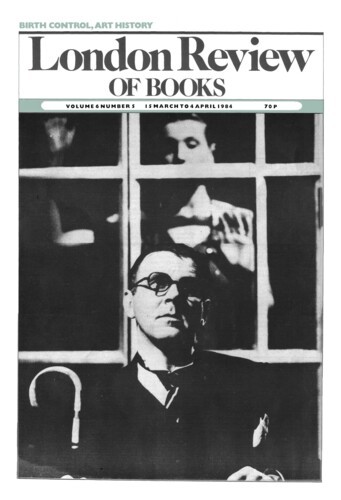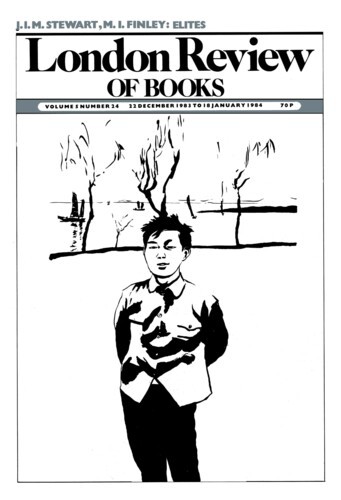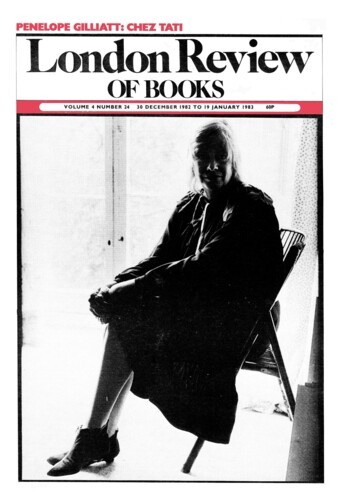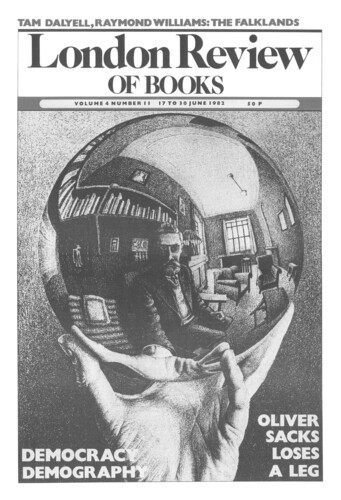Spicy
Nicholas Spice, 15 March 1984
In English nurseries little boys are known to be made of frogs and snails and puppy dogs’ tails. Little girls, as in my childhood I knew to my cost, are made of sugar and spice. And all things nice (which was a small consolation). Prickly, the infant protagonist of the sixth story in this collection of 14 by Michel Tournier, would agree. Maleness repels, femaleness attracts him. Papa is grizzled, tobacco-smelling, stiff and, above all, stubbly: rebarbative, in fact. Mama – soft, creamy, sweet-scented, supple Mama – summarises all things nice. Much else in the adult world reinforces these categories for Prickly. Including the public conveniences in the park which he goes to some afternoons with Marie his nanny. On the left, the Gents: foul-smelling and incommodious; on the right, the Ladies: perfumed, decorative and sumptuously furnished; in the middle, Mamouse, the large lady caretaker who sits ‘like the dog Cerberus’ at the gates of hell, watching over her pourboires and her pot of simmering chicken-giblet broth. Prickly’s chief aim in life is to sneak past Mamouse into the Ladies, where behind closed doors, and without having to stand up (a position which inhibits him), he can pee in peace. When Mamouse gets wise to this Prickly seeks advice from his friend Dominique, who is older than him and who passes in and out of the forbidden zone with mysterious immunity. At the centre of the park maze Dominique reveals how this can be: ‘Next, opening them wide, he pulled down the red underpants he had exposed. His smooth, white stomach ended in a milky slit, a vertical smile in which there was just a trace of pale down.’ The logic of the situation begins to dawn on Prickly. The vexatious problem of peeing like a man, Marie’s threats to have his willie cut off if he doesn’t stop wetting his bed, the curious statue in the park of Theseus and the Minotaur where Theseus, dressed like a girl, is apparently about to cut off the Minotaur’s willie, the hideous vision of a man’s genitals glimpsed one day in the urinals (‘the quantity of swarthy, flabby flesh he was trying with difficulty to cram back into his fly was incredible’), those chicken giblets in Mamouse’s pot … it all adds up. Prickly no longer wets his bed. His mind is made up. He takes Papa’s cut-throat razor and pre-empts the inevitable. He cuts off his willie himself. The outcome of ‘Prickly’ is a shock because it is unforeseen, but also because it is not unforeseeable. Prickly’s self-mutilation precipitates the sudden recognition of an awful congruity in everything that has led up to it, and we experience a sudden rush of meaning to the brain. This effect is typical of Tournier’s control of the short story form.–




